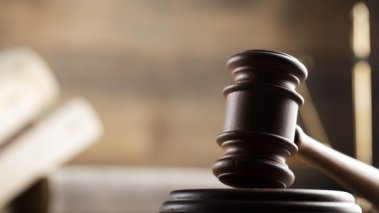Table of Contents
[UPDATED] Wrongly arrested for racial slur, UConn students sue university over violation of First Amendment, court order

Two University of Connecticut students arrested for using a racial slur last fall in a campus parking lot filed a lawsuit against the university today, arguing that the university’s dogged pursuit of disciplinary sanctions against them violates both the First Amendment and a 1990 federal court consent order.
In a lawsuit filed this morning in a Connecticut federal court, students Ryan Mucaj and Jarred Karal allege UConn and six administrators have made repeated efforts to unlawfully retaliate against them for their protected speech, citing an ongoing attempt to banish them from campus housing.
On Oct. 11, Mucaj and Karal were captured on a now-viral cell phone video saying a racial slur. Their speech was not aimed at anyone; the two were reportedly playing a game in which they said vulgar words, including “penis,” ultimately substituting the N-word.
Caught on video by a third party who then released it to community outcry, university police initiated an 11-day investigation. Drivers’ licenses, university surveillance cameras, Wi-Fi data, and card swipe data were used to identify Mucaj and Karal. They were subsequently arrested and charged under a plainly unconstitutional 1917 statute that — in banning “ridicule” in business advertising — had no application to students’ verbal use of offensive language but is nevertheless routinely abused by Connecticut police. (Today’s lawsuit against the university does not address the criminal prosecution. One of the students has accepted a diversionary plea agreement.)
In a letter to the university sent last October, FIRE reminded UConn that the speech at issue was protected by the First Amendment. As a state actor, UConn cannot punish students for speech protected by the First Amendment. Nonetheless, Mucaj and Karal detail in their lawsuit how UConn subsequently found them responsible for violating the school’s “disruptive behavior” policy and has subjected them to months of disciplinary proceedings. The university is now threatening to remove them from campus housing.
1990 Consent Decree
As we first reported in the fall, UConn is bound not only by the First Amendment, but also by a decades-old order that further prohibits UConn from infringing upon students’ free speech rights. The order, called a consent decree, formally resolved a 1990 First Amendment challenge to the university’s then-hate speech policy, which was first used to bar an Asian-American student from campus over a sign she posted on her door. As The New York Times reported at the time:
To Nina Wu, a junior at the University of Connecticut, the handmade poster she hung on her dormitory room door a year ago was just a joke. It listed the types of people who were “welcome,”’ “tolerated,” “unwelcome” and “shot on sight.” The last category included “bimbos,” “preppies,” “racists” and, some students say, “homos.”
University officials expelled Miss Wu from all residential and dining halls in April. They found the word “homos” a violation of the student conduct code’s anti-harassment rule, which prohibited “making slurs or epithets based on race, sex, ethnic origin, religion or sexual orientation.” […] [T]he incident was sparked by two women who felt that the word “bimbos” was directed at them. Disciplinary action was taken only after the official reviewing the complaint found that the poster also contained an anti-homosexual slur.
To resolve Wu’s lawsuit, UConn agreed to a permanent injunction barring it from enforcing “any . . . policy that interferes with the exercise of First Amendment rights by . . . any … student, when the exercise of such rights is unaccompanied by violence or the imminent threat of violence.”
Suit may force UConn’s hand
Six UConn administrators were also named in the suit, including President Thomas Katsouleas and Vice President Michael Gilbert; Eleanor JB Daugherty, associate vice president for student affairs and dean of students; Maureen Armstrong, associate dean of students and director of the Dean of Students Office; Alexandra Kytan, assistant director of community standards and a student conduct officer; and Kim Colon, assistant director of community standards.
Mucaj and Karal are represented by Brignole, Bush & Lewis LLC.
FIRE welcomes today’s legal action against UConn in hopes it will force the university to comply with its existing legal obligations, whether under a decades-old court order or under even older First Amendment law. Public institutions may not punish protected expression without facing consequences. As the Supreme Court explained long ago, “the State has no right to cleanse public debate to the point where it is grammatically palatable to the most squeamish among us” — by penalizing the use of particular words directed at nobody in particular.
Update (Jan. 17, 2019): Yesterday, citing the "sufficiently serious questions" concerning their First Amendment rights, a federal court issued a temporary restraining order barring the University of Connecticut from proceeding with a disciplinary hearing against the students. The court scheduled a January 29 hearing on a motion for a preliminary injunction.
Recent Articles
FIRE’s award-winning Newsdesk covers the free speech news you need to stay informed.

BREAKING: New Title IX regulations undermine campus free speech and due process rights


Stanford president and provost cheer free expression in open letter to incoming class
